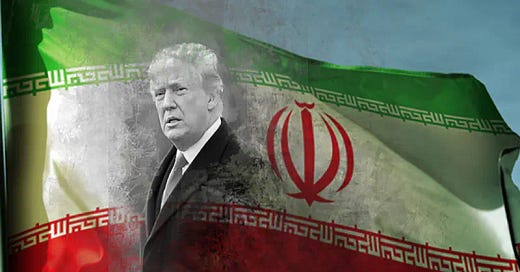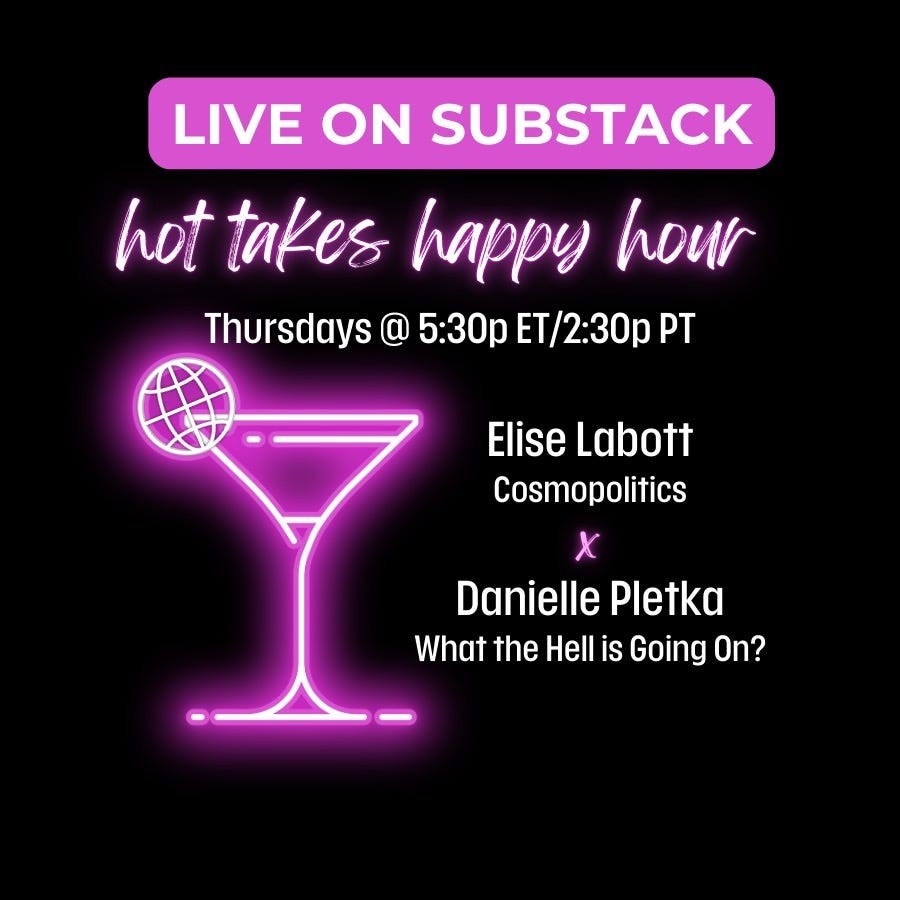Trump's revolutionary, recycled Iran deal
But Trump may succeed because he possesses what Obama lacked
For a man who built his first term on tearing up "the worst deal ever made," Donald Trump now finds himself in the awkward position of trying to recreate something suspiciously similar to the Iran nuclear agreement he once theatrically shredded. The irony couldn't be thicker if it were served in a gold-plated Trump Tower dessert bowl.
As Trump's envoy Steve Witkoff prepares for a second round of talks with Iranian officials in Rome this weekend, we're witnessing another round of diplomatic whiplash (as if the tariff-palooza of the last week wasn’t enough). One day, Witkoff suggests Iran could keep enriching uranium at low levels – essentially the Obama-era approach. The next day, after hawks scream bloody murder, he's demanding Iran "stop and eliminate its nuclear enrichment and weaponization program." This isn't coherent policy; it's foreign relations by mood ring.
Rarely have we seen strategic incoherence so nakedly displayed. The White House situation room is apparently divided between hawks like Secretary of State Marco Rubio and National Security Advisor Mike Waltz, who want Iran's program fully dismantled, versus pragmatists like Vice President JD Vance and Witkoff, who recognize reality demands compromise.
Let's be brutally honest about what's happening here: Iran is significantly closer to a nuclear weapon today than when Trump tore up the original deal in 2018. The International Atomic Energy Agency, the UN’s nuclear watchdog, says Iran is “not far” from the bomb. That acceleration is a direct consequence of his first administration's decision. Now faced with the fallout of his own making, Trump needs a quick-fix solution.
But there's a twist that makes this moment genuinely different from when the Obama administration negotiated the 2015 JCOPA. Iran is undeniably more vulnerable than at any point in recent memory. Its proxy network lies in tatters – Hamas devastated, Hezbollah decapitated, and the Assad regime in Syria toppled. Israel's October counterstrikes destroyed Iran's Russian-supplied air defenses, leaving its nuclear facilities exposed. The Islamic Republic's economy continues to sputter under crushing sanctions, with inflation running above 35 percent.
All of this creates an unprecedented opportunity for Trump, whose unpredictability might be an asset here. Unlike his predecessors, Trump can demand concessions from Israel without being labeled anti-Semitic. He can negotiate with Iran without being called soft. He can be genuinely unpredictable, creating leverage that traditional diplomacy simply can't match.
The true revelation in these negotiations isn't what's being discussed but what's happening behind the scenes. According to the New York Times, Israel was actively planning strikes on Iranian nuclear facilities as early as next month, requiring significant American military support. Trump waved them off, choosing diplomacy instead of war. Netanyahu’s face in his Oval Office meeting with Trump should have been the first clue: Trump announced Iran talks and Bibi left empty-handed
This suggests something that Trump's critics struggle to acknowledge: for all his bombast about "bombing the hell" out of Iran if they don't make a deal, Trump appears genuinely reluctant to launch another Middle East conflict. The man who campaigned on ending foreign wars seems determined to avoid starting new ones.
What’s missing from Trump’s self-styled “deal-maker” approach – and the persistent blind spot in his international negotiations - is the fundamental understanding that successful negotiations require comprehending what the other side needs, not merely what you want them to surrender. His ultimatum – "If they don't make a deal, there will be bombing" – underscores his transactional approach to diplomacy. Yet true diplomatic breakthroughs emerge from mutual gains, not threats.
The real question isn't whether Trump will secure an agreement – he probably will. It's whether that agreement will be substantively different from the one Obama negotiated. Iranian Foreign Minister Abbas Araghchi has already declared uranium enrichment "non-negotiable," suggesting Iran wants something very similar to the 2015 deal: cap enrichment levels in exchange for sanctions relief.
Trump will need to secure something beyond the original agreement – perhaps longer timelines, stricter verification, or limitations on Iran's ballistic missile program – to claim victory. But the fundamental deal architecture will likely resemble what existed before.
But Iran is trying to strategically strengthen its position. Tehran's diplomatic corps—veterans of decades of complex negotiations—appears poised to outmaneuver Trump's team. Foreign Minister Araghchi shrewdly published a Washington Post op-ed flattering Trump while criticizing Biden's "lack of real determination"—clearly calculated to exploit Trump's ego and competitive instincts.
Both sides appear cautiously open—Iran reprimanding media predicting Trump's assassination while dangling a "trillion-dollar opportunity" for American businesses. But can Trump's deal-making instincts match Iran's sophisticated diplomatic chess game?
For all the dramatic flourishes and threats of military action, we're watching a bizarre cycle of destruction and recreation. Trump tore up a functional, if imperfect, agreement that had Iran's nuclear program in check. Iran responded by accelerating toward weapons capability. Now, Trump must negotiate a new deal to solve the very crisis his actions helped create.
This pattern echoes across Trump's foreign policy: from oscillating tariff threats with China, to his one-sided "peace plan" for the Middle East, to his puzzling deference to Putin. In each case, Trump fixates on immediate visible "wins" while missing the complex undercurrents that determine lasting outcomes.
The greatest irony is that Trump may succeed precisely because he possesses what Obama lacked: credibility on military action, a willingness to walk away, and immunity from accusations of appeasement. In this bizarro world of international relations, Trump's unorthodox approach could transform a diplomatic crisis largely of his own making into a personal triumph.
Whether that triumph serves American interests or merely Trump's ego remains to be seen. But it's undeniable that this diplomatic saga epitomizes Trump's entire approach to governance: break something, create a crisis, then solve the crisis you created and demand adulation for your problem-solving genius.
Perhaps there's a lesson here. Sometimes the most effective dealmaking isn't about tearing up existing agreements but remembering why they exist in the first place. For a self-proclaimed master dealmaker, that might be the most valuable lesson of all.
NOTE: Don’t forget to join
and me for at 5:30p ET TODAY for our Hot Takes Happy Hour, where we will discuss the Iran talks, along with Abrego Garcia (now in al El Salvadoran jail), Harvard takes on Trump, and much more. Add questions in the comments below. Maybe you’re just getting home? Maybe you’re packing up at work. No matter what, it’s cocktail hour. Let’s take the edge off the week’s news!






David, what I meant is that in a negotiation, you need to consider the other person's point of view to be able to make a deal. So yes, at least knowing what Iran wants is important to make a deal. Not to name drop, but what I met the Dalai Lama in 2010, he told me the same thing about China!
What Iran needs? Iran needs the destruction of the Jewish state and they will not shy away from anything to achieve this goal. Longer time lines? Obama agreed to a “ timeline” that ended the agreement, I think it was 10 years after signing. Israel cannot agree to any finite end to any agreement and should not be forced to do so, not by Witkoff, Trump or Musk!